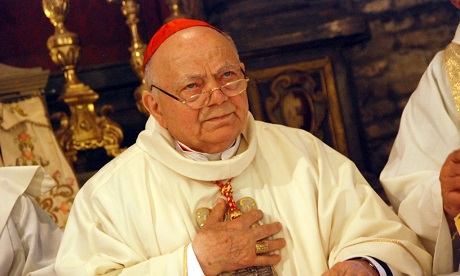There are ten critical points to consider in relation to Charlie Gard, says Italian Cardinal Elio Sgreccia, former President of the Pontifical Academy for Life.
Specialists at Great Ormond Street Hospital where eleven-month old Charlie has being cared for say he has no chance of survival or improvement. Prolonging his life may cause significant suffering.
Charlie cannot see, hear, move, cry, swallow or breathe on his own.
The ten points Sgreccia made are:
- People who cannot be cured have the most right to be taken care of.
- Every human being, including the new-born, has a right to dignity regardless of their state of health. This dignity includes their right to care and attention.
- Feeding and hydration are not therapies, so the hospital’s decision to withdraw Charlie’s life support is essentially letting him die of hunger and thirst just because he can’t feed himself.
- Doctors and the patient (in this case Charlie’s parents on his behalf) must be actively involved in the decision making process and not have to “suffer passively the decisions and choices of others”.
- Charlie needs an integral palliative and systematic approach, regardless of whether he is able to recover. This approach could hypothetically accompany experimental work on his condition.
- In relation to pain control; it is in Charlie’s best interests. It will assure him the most dignified existence possible if he cannot access the experimental protocol in the United States.
- The European Court of Human Rights did not respect the criteria (one to six) above and “glided in an unbelievable way on all the aspects of content listed up to here and …beyond, assuming a purely procedural position.
- There can be a conception of the efficient management of health resources that generates a “rampant disposable culture.”
- There is a cultural paradigm that tends to recognise the non-dignity of certain human existences and confuses that with the pathology with which they are suffering.
- In these new cultural paradigms you can detect the ambivalence of those who, in demanding the freedom to make their own decisions regarding euthanasia – based on individual autonomy — at the same time deny this autonomy in other cases …[like Charlie’s].
Source
- Zenit
- BBC
- Image: Il dono della vita
News category: World.




